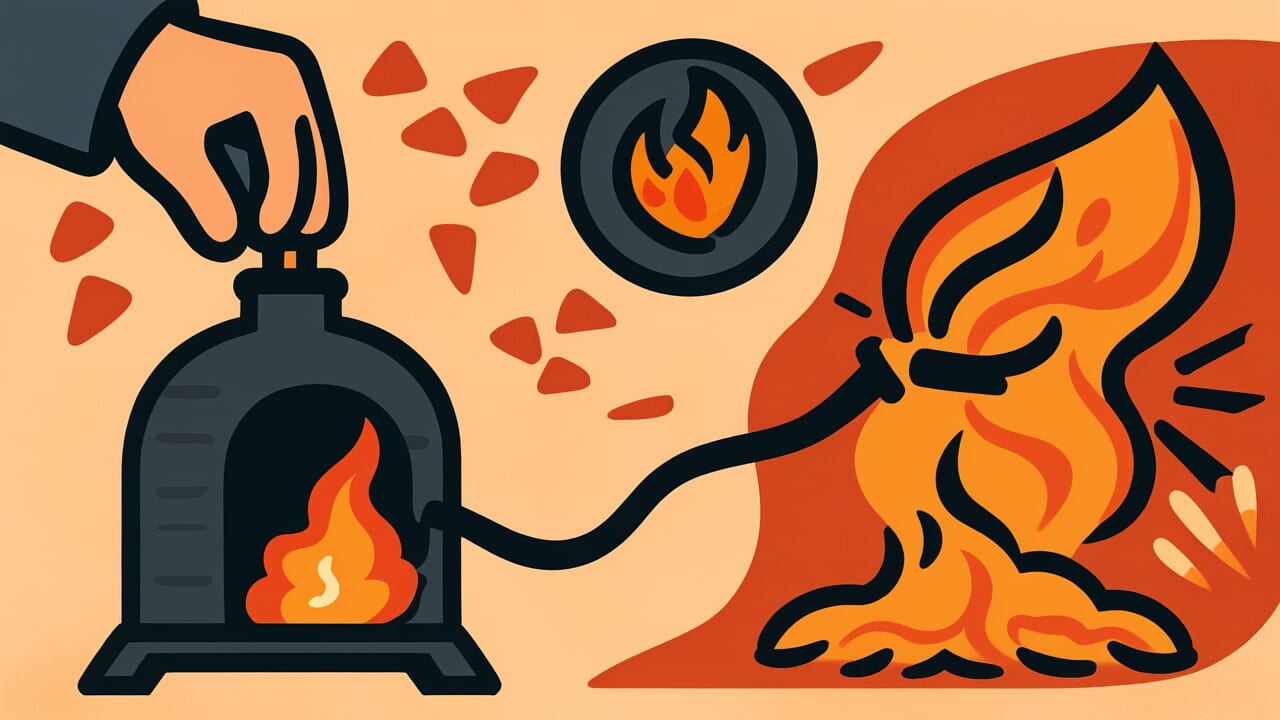How to Read “Fire cannot extinguish fire”
Hi de hi wa kienu
Meaning of “Fire cannot extinguish fire”
“Fire cannot extinguish fire” is a proverb that means you cannot solve a problem using the same nature as the problem itself.
Just as you need water to put out a fire, you need an approach with different qualities to solve a problem.
For example, when someone is angry at you, responding with your own anger won’t calm things down.
If you meet violence with violence, the conflict only gets worse. This proverb applies to such situations.
It points out how useless it is to use methods that match the problem’s nature. Instead, you need to search for a different approach.
Even today, this principle applies everywhere. Workplace conflicts, family disputes, and international tensions all follow this pattern.
If you want to solve a problem, you need an approach with completely different qualities, not the same energy as the problem itself.
Origin and Etymology
No clear written records exist about this proverb’s origin. However, we can make interesting observations from how the phrase is constructed.
“Fire cannot extinguish fire” is a metaphor based on physical truth.
When a fire breaks out, throwing more fire at it won’t put it out. This obvious fact gets applied to human relationships and problem-solving principles.
Japan has many proverbs that overlay natural phenomena onto human society lessons.
Examples include “Water conforms to square or round vessels” and “Applying moxa to stone.” This expression using fire, one of humanity’s most familiar natural phenomena, likely emerged from that tradition.
The use of the negative form “cannot extinguish” deserves special attention.
Rather than the positive expression “extinguish fire with water,” it deliberately emphasizes impossibility.
This may reflect humanity’s history of repeatedly trying and failing to solve problems with the same methods.
Meeting violence with violence, anger with anger, only makes things worse. That bitter lesson is condensed into these simple words.
Usage Examples
- Responding to his criticism with more criticism is like “fire cannot extinguish fire”—the relationship will only deteriorate
- I tried to drown my stress in alcohol, but “fire cannot extinguish fire”—my physical and mental condition only got worse
Universal Wisdom
“Fire cannot extinguish fire” has been passed down through generations because humans instinctively want to “fight back with the same thing.”
When someone attacks us, an impulse to “strike back” wells up inside. This is a response rooted in survival instinct.
However, following this instinct causes conflicts to expand endlessly. The other person has the same instinct too.
Human history has been a battle against this vicious cycle.
Revenge calls for revenge, hatred breeds hatred. To break this chain, someone must choose a different quality of action.
Calmness against anger. Dialogue against violence. Understanding against hatred.
This proverb’s deep wisdom goes beyond problem-solving techniques. It teaches us what human maturity means.
Rather than reacting on instinct, we need the power to step back and think, “What does this problem really need?”
That is the essence of reason that separates humans from animals.
Our ancestors may have packed into these simple words the conditions for being truly human.
When AI Hears This
Systems have a concept called “variable types.” To lower temperature, you need the opposite variable of cooling.
To eliminate sound, you need the contrasting variable of silence. Yet humans tend to increase the same variable as the problem during crises.
In control engineering, feedback control has “positive feedback” and “negative feedback.”
Air conditioners cool rooms through negative feedback—applying force in the opposite direction of the current state.
If you strengthened heating because it’s hot, that would be positive feedback, and the system would spiral out of control.
Trying to extinguish fire with fire is exactly this positive feedback loop.
What’s interesting is how this applies to social media controversies.
Responding to aggressive comments with aggressive rebuttals adds the same heat to the emotional temperature variable.
Then participants increase exponentially. A controversy that should resolve in 24 hours can last weeks.
What’s needed here is a “cooling” variable like apology or silence.
Research by international relations scholars shows that retaliatory attacks escalate by an average of 1.3 times each round.
An attack of 10 gets a response of 13, which gets a response of 17.
When this amplification rate exceeds even 1.0, the system inevitably heads toward collapse.
To solve problems, introducing different rather than similar variables is an absolute requirement.
Lessons for Today
This proverb teaches modern people the “courage to pause” when facing problems.
In our busy daily lives, we tend to act reflexively. If someone comes on strong, we come on strong too.
If criticized, we criticize back. But stop and think for a moment.
Isn’t the action you’re about to take the same nature as the problem itself?
In modern society, many problems get worse through “fighting back with the same thing.”
Social media controversies, workplace harassment, family discord—all deepen this way. That’s why this old proverb’s value keeps growing.
Next time you face difficulty, remember this: Fire cannot extinguish fire.
Then ask yourself: Doesn’t this situation need something completely different, not the same energy as the problem?
The wisdom to find that “something different” will help you grow and lead you to real solutions.



Comments